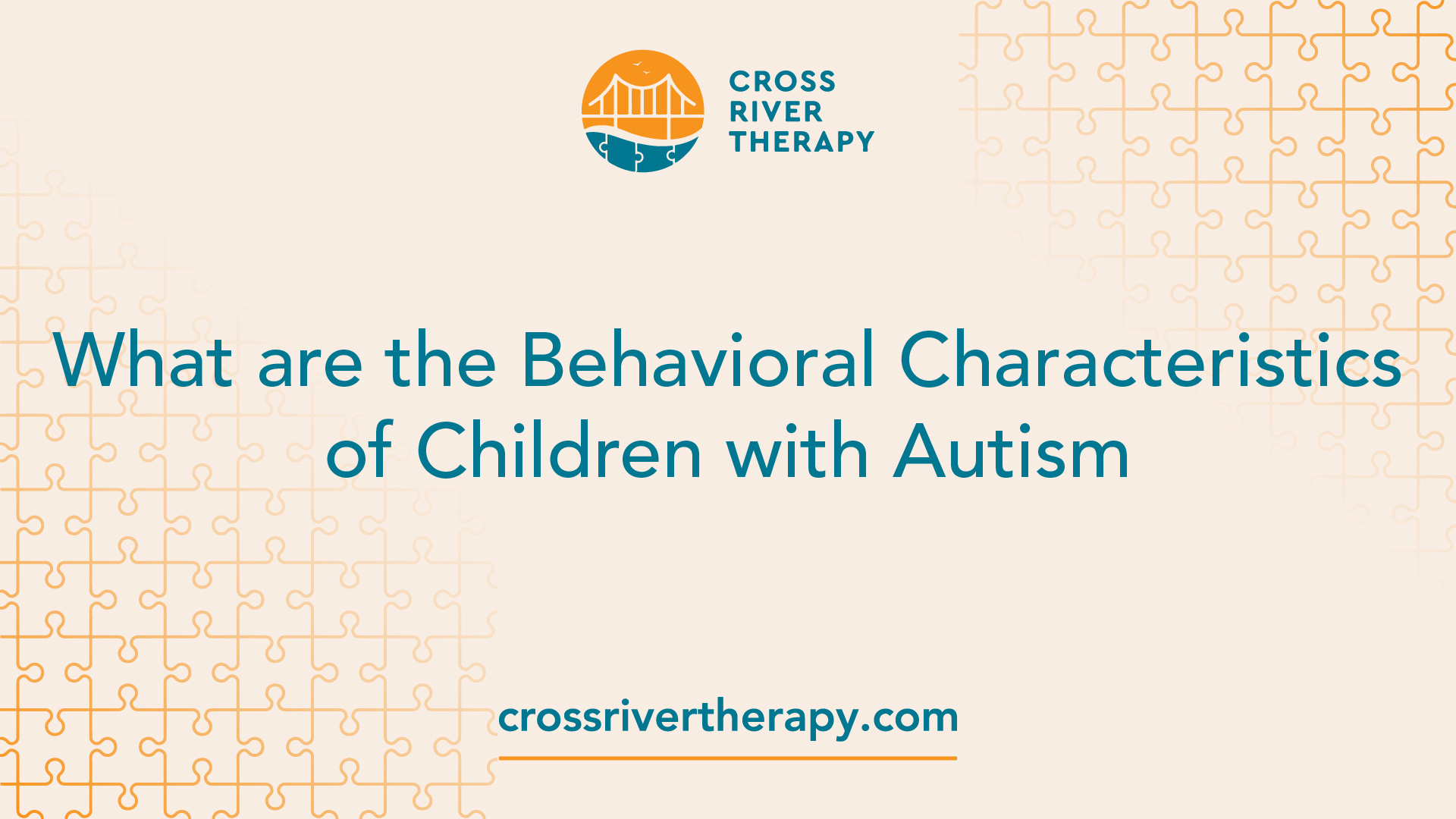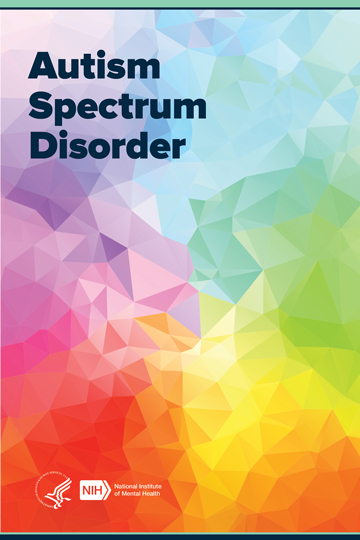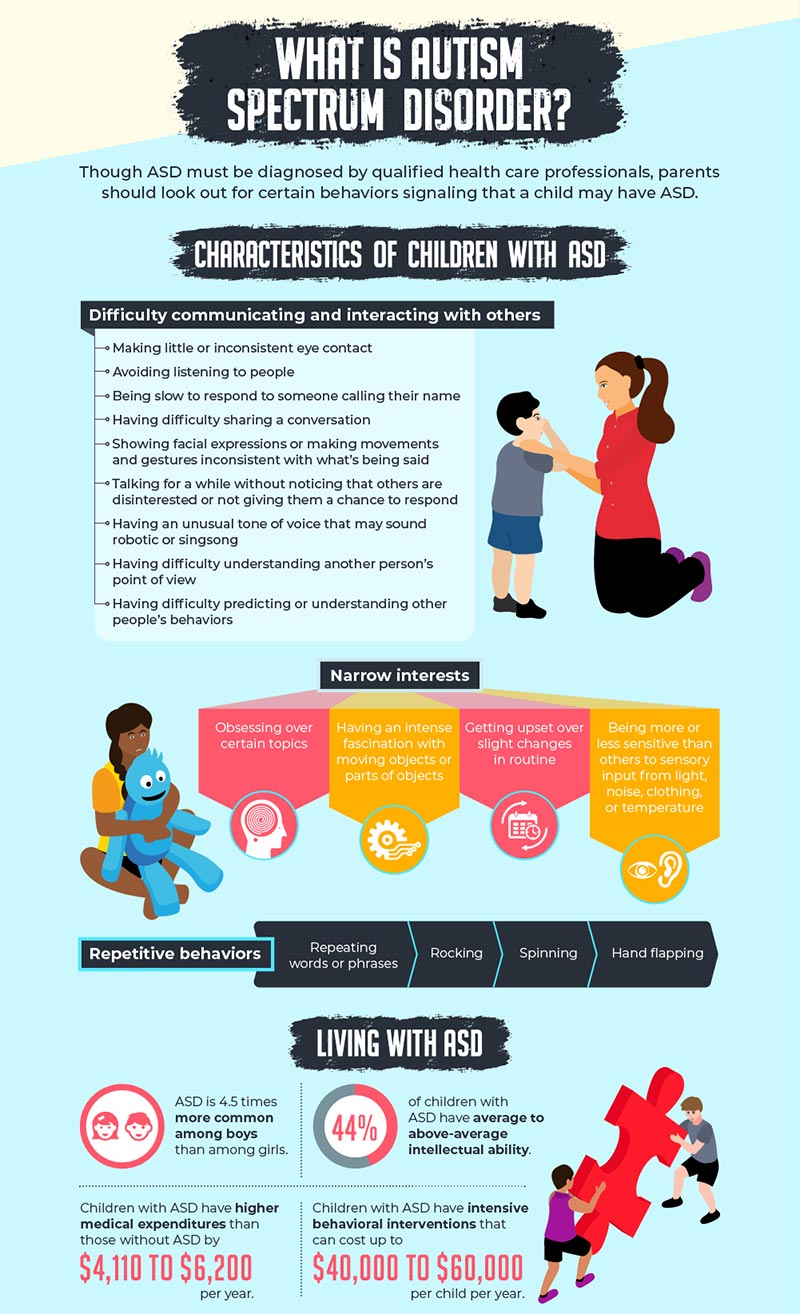Turning challenges into growth using Autism Behavioral Therapy tools
Turning challenges into growth using Autism Behavioral Therapy tools
Blog Article
Understanding the Effect of Behavioral Autism on Day-to-day Live and Social Communications
You may not recognize how deeply behavior autism impacts day-to-day life and social communications. Individuals on the spectrum often navigate a globe filled up with communication difficulties and sensory overload. These difficulties can lead to disappointment and seclusion, impacting their relationships and overall wellness.
Specifying Behavior Autism and Its Characteristics
Behavioral autism, commonly described as autism range problem (ASD), includes a variety of problems characterized by difficulties in social interaction, communication, and repetitive actions. You may see that people with ASD typically battle to analyze social cues, which can bring about misunderstandings in discussions. They might discover it hard to develop eye call or participate in little talk, making social circumstances feel overwhelming.
Communication troubles can show up in numerous methods, from delayed speech development to a preference for utilizing less words. Recurring actions, such as hand-flapping or shaking, can act as coping systems to manage stress and anxiety or sensory overload. These features can exceptionally affect day-to-day life, making it essential for you to understand and support those with ASD. By identifying these attributes, you can promote an atmosphere that promotes acceptance and encourages reliable communication, helping individuals with autism prosper in their daily interactions.
The Spectrum of Autism: Recognizing Irregularity in Behavior
Autism spectrum problem (ASD) isn't a one-size-fits-all diagnosis; it differs commonly amongst individuals. You may experience individuals that are very verbal and involve easily in conversations, while others could like singular activities or connect non-verbally.
Additionally, the method individuals with ASD reply to sensory input can differ considerably; some could be overwhelmed by loud sounds or brilliant lights, whereas others thrive in promoting environments. The spectrum likewise includes differences in social interactions; some people may have a hard time to analyze social signs, while others navigate social setups with loved one simplicity. Understanding this irregularity is necessary, as it helps you value everyone's distinct experience and tailor assistance to their specific demands, cultivating a much more inclusive setting for every person.
Interaction Difficulties Faced by Individuals With Autism
When you engage with people on the autism spectrum, you may observe their special interaction challenges. They frequently face troubles with both nonverbal and verbal cues, which can affect their social interactions. Understanding these barriers is vital for promoting better connections and assistance.

Verbal Interaction Problems
Many individuals on the autism range experience spoken interaction troubles that can substantially impact their everyday interactions. You may find it testing to express your ideas, feelings, or needs plainly. This can bring about stress for both you and those around you, as misunderstandings take place. You might deal with initiating discussions, preserving a topic, or understanding subtleties in speech. Typically, you could favor utilizing straightforward language or repetitive phrases, which can limit your capability to engage in much deeper conversations. Your tone, quantity, or pace may not straighten with social assumptions, creating others to misinterpret your objectives. Recognizing these challenges can assist you and your assistance network create techniques to improve interaction and promote better links with others in your life.
Nonverbal Communication Obstacles
Spoken interaction isn't the only challenge individuals on the autism spectrum face; nonverbal communication barriers can be equally as considerable. You may locate it difficult to translate body language, faces, and eye call, which are necessary for reliable communication. These obstacles can bring about misconceptions or misinterpretations of social signs, making interactions really feel complex or overwhelming. You might have a hard time to express your very own feelings via nonverbal ways, leaving others unclear of your sensations or purposes. This disconnect can develop feelings of seclusion and stress. Acknowledging these obstacles is important for fostering understanding and compassion in your interactions. By dealing with nonverbal interaction, you can find strategies to enhance your social experiences and improve your overall lifestyle.
Social Communication Effects
Social interactions can usually feel overwhelming due to the unique interaction challenges faced by individuals with autism. You could battle with interpreting social cues, making it tough to recognize mockery or body movement. This can cause misunderstandings or unpleasant minutes in conversations. Furthermore, initiating and maintaining conversations might feel challenging, creating anxiousness in social situations. You might choose structured settings, read this article making spontaneous interactions unpleasant. It's also common to experience difficulty in taking part in tiny talk, which can impede forming brand-new friendships. Recognizing these difficulties can help you discover methods to improve communication, such as exercising social skills in safe settings or making use of aesthetic help - Autism Behavioral Therapy. Recognizing your needs permits you to navigate social interactions with higher confidence and convenience.
Social Communication and Connection Structure in Autism
While building relationships can be challenging for individuals with autism, recognizing their one-of-a-kind viewpoints and interaction styles can cultivate purposeful connections. You could observe that several people on the range prefer direct communication and may fight with social cues or little talk. By being uncomplicated in your interactions, you can assist create a setting where they feel comfortable.
Put in the time to pay attention and observe just how they share themselves. This insight can assist you in guiding conversations better. Participating in shared interests can also offer as a bridge to much deeper connections. Whether it's a leisure activity, a favored show, or a mutual interest, these usual strings can open up doors to friendship.
Life Routine: Browsing Methods and obstacles
Navigating day-to-day life regimens can be especially testing for people with autism, particularly when unanticipated adjustments happen. To navigate these obstacles, consider implementing visual schedules or lists.
Establishing a regimen that consists of sensory breaks can also be advantageous. You can intend short breaks throughout your day to reenergize. It's important to connect with those around you, letting them know your needs and preferences. This assists create an understanding atmosphere.
Finally, practice mindfulness strategies to handle stress and anxiousness. Easy breathing workouts or grounding strategies can make a substantial distinction. By incorporating these methods, you can improve your daily regimen and minimize interruptions, making life feel extra convenient.
Toughness and Capabilities of People on the Autism Range
Recognizing daily life routines is just one element of the autism experience. Lots of people on the autism range have remarkable strengths and abilities that set them apart.
Additionally, your memory skills commonly radiate, particularly in locations of interest. Autism Behavioral Therapy. This knack for preserving details can make you an important resource in fields like modern technology, art, or science. You may additionally display solid aesthetic reasoning, allowing you to visualize complex concepts and address troubles artistically
Furthermore, your distinct perspective on the globe can cultivate compassion and understanding in others, improving social communications. Welcoming these strengths not just enhances your self-confidence however also aids others appreciate the varied talents you offer the table.
Developing Inclusive Environments for People With Autism
Producing inclusive environments for people with autism begins with creating sensory-friendly areas that deal with their unique needs. You can additionally promote opportunities for social communication, assisting to build links and friendships. By making these modifications, you'll contribute to a more inviting why not look here environment for everybody.
Designing Sensory-Friendly Spaces
While developing sensory-friendly areas, it's crucial to show on the special requirements of individuals with autism. Integrate silent zones where people can pull away and reenergize when bewildered. Include visual timetables or clear signs to aid people navigate the space confidently.
Advertising Social Communication Opportunities
Creating sensory-friendly spaces not only addresses specific comfort however additionally establishes the phase for purposeful social communications amongst individuals with autism. Encourage peer mentoring, pairing individuals with autism with encouraging peers that can guide them through social circumstances. By executing these methods, you can improve social opportunities, aiding people with autism build relationships and reinforce their social skills in a safe, inviting setting.

Frequently Asked Questions
Just How Can Buddies Support Somebody With Behavioral Autism?
You can support a close friend with behavioral autism by being patient, paying attention actively, and valuing their limits. Take part in activities they enjoy, communicate honestly, and develop a comfortable atmosphere where they feel valued and comprehended.
What Resources Are Readily Available for Moms And Dads of Kid With Autism?
You can discover numerous sources for try this site moms and dads of youngsters with autism, including assistance teams, educational web sites, and local social work. Linking with other moms and dads can additionally offer beneficial understandings and shared experiences to assist navigate challenges.
Can Behavioral Autism Modification Gradually?

Yes, behavior autism can alter in time. You may see changes in interaction, social abilities, and behavior as your youngster expands. Early treatment and support frequently play essential functions in these developing adjustments.
How Do Sensory Level Of Sensitivities Affect Life?
Sensory level of sensitivities can make day-to-day experiences overwhelming. You could deal with loud sounds or bright lights, causing anxiety or evasion. Discovering settings that fit your demands can substantially enhance your comfort and overall day-to-day live.
What Are Usual Misconceptions Regarding Behavioral Autism?
You may believe behavior autism just impacts communication skills, however it's more complex. Many presume individuals do not have compassion or intelligence, which isn't true. Comprehending these misunderstandings assists foster acceptance and assistance for those on the spectrum.
Behavioral autism, often referred to as autism spectrum condition (ASD), includes an array of conditions characterized by obstacles in social interaction, communication, and repeated actions.Social communications can usually really feel overwhelming due to the distinct interaction difficulties encountered by people with autism.Designing sensory-friendly areas not only addresses specific convenience yet also establishes the phase for purposeful social interactions among individuals with autism. Motivate peer mentoring, coupling people with autism with supportive peers that can lead them via social circumstances. By applying these strategies, you can enhance social possibilities, assisting individuals with autism build friendships and reinforce their social abilities in a safe, welcoming setting.
Report this page